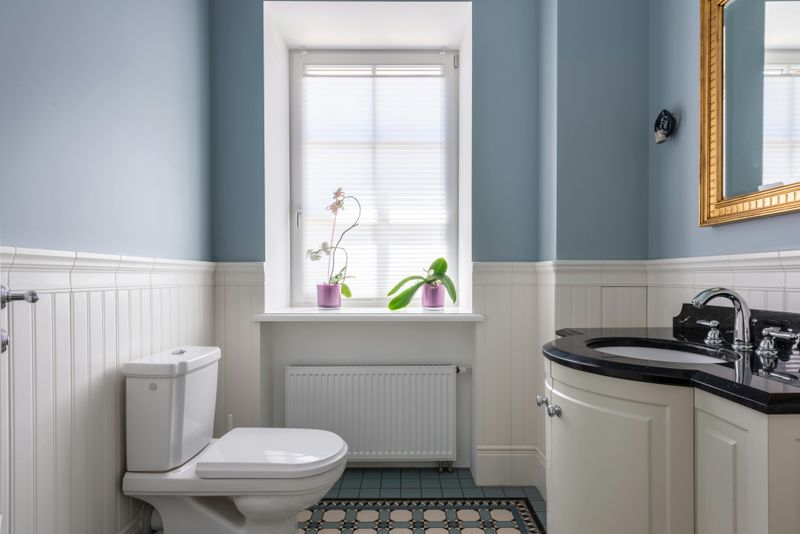17 Small Marriage Habits That Blow Up Into Big Problems

Marriage is built on daily habits that seem small but can create big issues over time. These tiny actions might not seem like a big deal at first, but they can slowly chip away at your relationship’s foundation. Understanding these sneaky trouble spots can help couples address problems before they grow into relationship-threatening issues.
1. Dirty Dishes Piling Up

What seems like a harmless habit—leaving plates and cups in the sink—can send a clear message: you might be expecting your partner to pick up after you, which can create imbalance.
Over time, those crusty dishes become symbols of disrespect rather than just chores. The person who constantly cleans up starts feeling like a maid rather than a partner.
This small issue can explode into arguments about who contributes more to the household. What starts as an eye-roll over a dirty pan becomes deep resentment about overall responsibility sharing.
2. Remote Control Power Struggles

Always grabbing the remote first might seem like a small thing, but it reveals deeper control patterns. One partner consistently choosing what to watch creates an imbalance in whose preferences matter.
The real issue isn’t about TV shows – it’s about whose voice carries more weight in the relationship. The partner who never gets to choose entertainment starts feeling invisible in other decisions too.
Healthy couples find ways to take turns or compromise on entertainment choices. What appears as a tiny TV habit actually reflects how you handle power and preferences across your entire relationship.
3. Overlooking Special Dates

When you forget the early milestones—first date, first kiss, monthly anniversaries—it can silently say to your partner that those memories don’t mean much to you.
The hurt feelings aren’t really about the forgotten date itself. They’re about what that forgetfulness symbolizes: that you’re not paying attention to what matters to them.
Even busy couples can set calendar reminders for special dates. The effort to remember shows you value not just the occasion but the person who cares about it.
4. Screening Calls From Your Partner

Regularly ignoring your spouse’s calls creates a wedge between you, even when there’s a valid reason. The person being ignored starts wondering if they’re less important than whatever else has your attention.
A quick text saying “In a meeting, call you soon” takes seconds but preserves connection. Without that acknowledgment, your partner feels dismissed and pushed aside.
Communication patterns set during small daily interactions build the foundation for how you’ll handle bigger issues. When ignored calls become normal, your partner learns their attempts to connect aren’t worth responding to.
5. Bathroom Etiquette Battles

That toilet seat left up becomes more than just an inconvenience – it transforms into evidence that one partner doesn’t consider the other’s needs. Small bathroom habits like squeezing toothpaste from the middle or leaving wet towels on the bed seem trivial but pack an emotional punch.
These tiny behaviors signal whether you’re thinking about your partner’s experience or just your own. They reveal if you’re willing to make small adjustments for their comfort.
Couples who address these mini-irritations prevent them from becoming major grievances. A little bathroom consideration goes a long way toward showing everyday respect.
6. Gratitude Gone Missing

“Thanks” might seem like just a word, but its absence creates a gratitude desert in relationships. Partners who stop acknowledging each other’s efforts start feeling taken for granted.
The magic of appreciation is how it transforms ordinary actions into meaningful gestures. Cooking dinner becomes an act of love when met with genuine thanks. Without recognition, even the biggest efforts shrink in value.
Couples who maintain the habit of saying thank you preserve the feeling that they matter to each other. This tiny verbal habit creates an atmosphere where both people feel seen rather than invisible.
7. Phone Addiction During Together Time

When your phone grabs your attention while your partner talks, it’s like you’re somewhere else—even if you’re right there. That invisible wall grows stronger with every swipe.
The message sent isn’t just distraction – it’s that whatever’s happening online matters more than the person sitting beside you. Partners watching this behavior feel they’re competing with an entire digital world for attention.
Quality time requires actually being present, not just occupying the same space. The habit of reaching for phones during conversations slowly erodes your connection, one scroll at a time.
8. Mattress Territory Invasion

Blanket-hogging and sprawling across three-quarters of the bed might seem funny, but poor sleep creates cranky partners. One person consistently losing sleep due to mattress battles wakes up resentful rather than refreshed.
Sleep quality directly impacts how partners interact during waking hours. The person who spent the night fighting for blanket scraps brings that frustration into morning conversations.
Respecting sleep boundaries shows you care about your partner’s basic needs. Couples who work out fair sleeping arrangements protect not just their rest but their daytime relationship quality too.
9. Half-Hearted Listening Habits

You might be nodding, but if your eyes are on your phone, your partner knows you’re not really listening. True attention means tuning out distractions and focusing on their words.
The half-listener misses important emotional cues and subtle meanings. Their partner feels the conversation equivalent of shouting into a void, wondering why they even bother sharing.
Couples who practice active listening build emotional safety. Something as simple as making eye contact and putting devices down signals that what your partner says matters to you, creating connection rather than frustration.
10. The Last-Roll Syndrome

Using the final paper towel or toilet paper without replacing it seems minor until you’re the one left stranded. This pattern of consuming shared resources without restocking them creates unnecessary stress moments throughout the home.
The real message sent isn’t about forgetfulness but thoughtfulness. The person who repeatedly finds empty containers feels their comfort isn’t worth their partner’s minimal effort.
Couples who develop the habit of replacing what they use demonstrate everyday care. Something as simple as installing a spare toilet paper holder can prevent both practical inconvenience and the emotional message that accompanies it.
11. In-Law Visit Tensions

Small disagreements about when relatives visit or how long they stay reveal deeper priorities about family boundaries. One partner might view weekend visits as normal while the other sees them as intrusions on precious couple time.
These tiny tussles about family schedules signal whether you’re operating as a united team or competing camps. Partners who feel their comfort is sacrificed for in-laws start resenting both the relatives and their spouse.
Successful couples create clear visiting boundaries together. The habit of checking with each other before issuing family invitations shows respect for your shared space and relationship needs.
12. Clothing Scattered Everywhere

Those jeans and socks on the bedroom floor speak volumes about respect for shared spaces. The partner who repeatedly picks up after the other starts feeling like a parent rather than an equal.
Clothing trails throughout the house create visual chaos that affects mood. The tidy partner experiences daily frustration seeing their efforts undone, while the messy one might not even notice the problem.
Couples who find workable cleanliness compromises prevent this common friction point. Simple solutions like bedroom hampers or designated “drop zones” acknowledge different tidiness preferences while showing respect for shared living spaces.
13. Criticism Instead of Requests

“You never take out the trash!” hits differently than “Could you take out the trash today?” One approach attacks character while the other addresses a specific need.
The habit of framing wants as complaints creates a hostile environment. Partners on the receiving end of constant criticism feel defensive rather than helpful, leading to arguments instead of solutions.
Couples who practice making clear, kind requests preserve goodwill between them. The tiny shift from complaining to asking demonstrates respect and prevents the slow buildup of resentment that criticism creates.
14. Communication Blackouts

Forgetting to send that “running late” text might seem minor, but patterns of poor communication create relationship insecurity. When one partner consistently doesn’t know where the other is or when they’ll be home, worry and suspicion grow in that information gap.
Regular check-ins aren’t about control – they’re about courtesy and connection. The habit of keeping each other informed shows you’re thinking about your partner’s feelings even when apart.
Couples who maintain communication rhythms build trust over time. Something as simple as a quick text updates both your location and your commitment to keeping your partner in the loop.
15. Personal Space Invasion

Some doors are meant to stay closed until invited in. Walking into the bathroom without knocking or reading private messages without asking crosses those important, unseen boundaries.
Respecting privacy isn’t about hiding secrets – it’s about honoring individuality. Partners who feel their personal boundaries are regularly violated start building walls to protect themselves.
Healthy couples recognize and respect each other’s need for privacy. Simple habits like knocking before entering or asking before borrowing personal items show you see your partner as a separate person deserving of respect, not just an extension of yourself.
16. The Mental Load Imbalance

“Just tell me what to do” puts one partner in charge of noticing, planning, and delegating all household work. This creates an exhausting mental load imbalance where one person manages the home while the other just follows instructions.
The partner carrying the mental load feels perpetually tired and resentful. They’re not just doing chores – they’re running the entire household operating system in their head.
Couples who share both the doing and the noticing create true partnership. Taking initiative to spot what needs doing, rather than waiting to be asked, shows you’re equally invested in your shared home and life.
17. Conversation Interruptions

Cutting your partner off mid-sentence sends a clear message: what you have to say matters more than what they’re sharing. Regular interruptions create one-sided conversations where one voice dominates.
The interrupted partner eventually stops trying to express themselves fully. Why bother starting meaningful conversations when you know you’ll be cut off before finishing your thought?
Couples who practice taking turns speaking build deeper understanding. The habit of listening completely before responding shows respect for your partner’s perspective and creates space for both voices to be heard equally.

Comments
Loading…